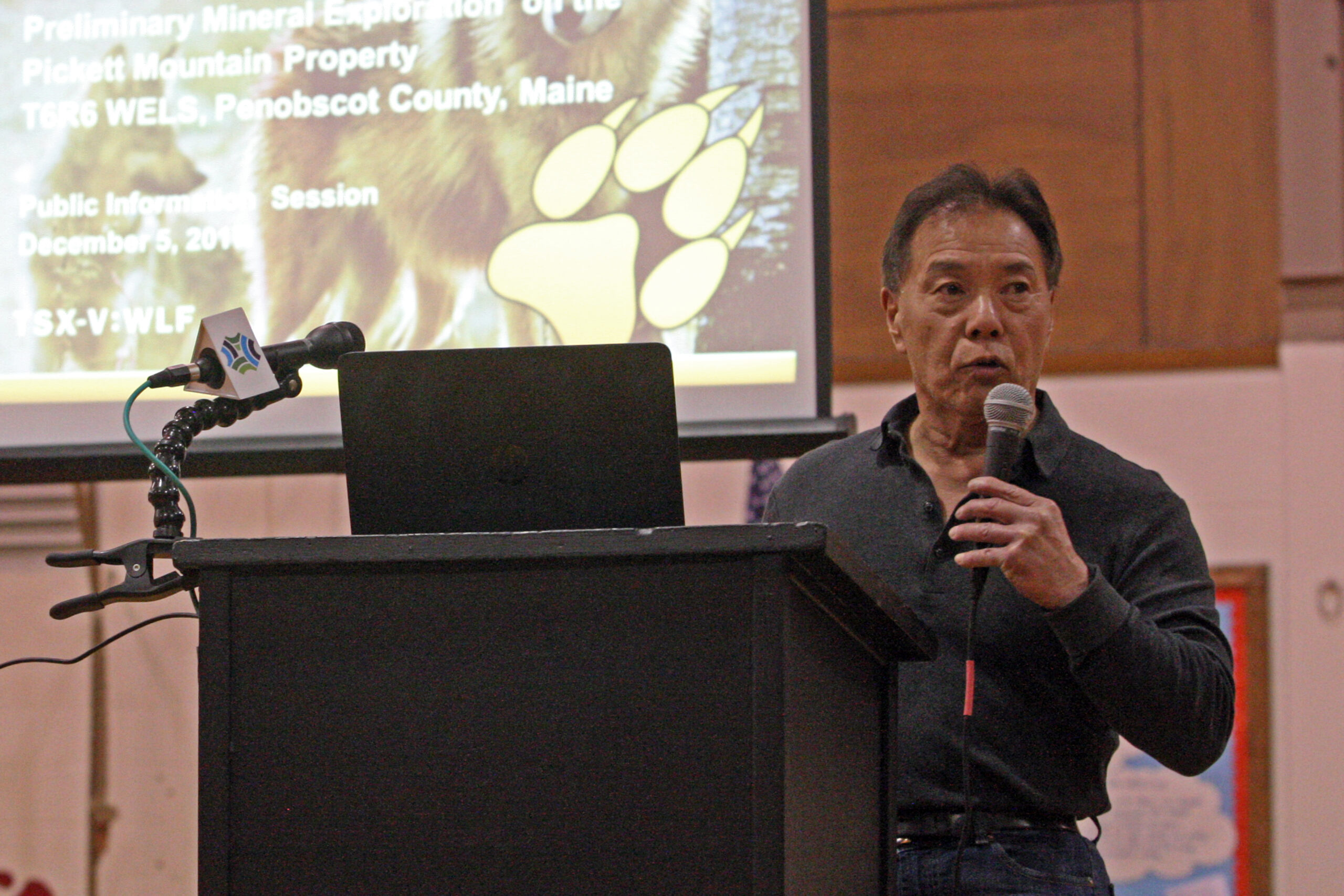
PATTEN, Maine — Canadian mining firm Wolfden Resources has started exploration for metals on land in the unorganized territories in northern Penobscot County.
Ontario-based Wolfden Resources began test drilling at Pickett Mountain on Saturday morning and has voluntarily filed an exploration work plan with the Maine Land Use Planning Commission, according to company CEO Donald Hoy.
On Nov. 16, Wolfden Resources purchased the 6,871 acre parcel of timberlands north of Patten for $8.5 million with the goal of developing a mine for copper, zinc or other valuable metal minerals.
In an interview Tuesday, Hoy said the company will be conducting a series of exploration techniques to gauge whether the Pickett Mountain deposit could make an economically viable underground mine.
“The idea is to go back to the historic drill holes and try to confirm some of the grades that were encountered at that time,” Hoy said. “We have to go back and confirm and just to prove that the deposit is there.”
He said the goal is to have one or two holes drilled by Wednesday. The crew, consisting of four people over two shifts, plus a staff geologist, will break for Christmas and then resume in mid-January, Hoy said.
Based on its geology and limited exploration by another company in the late 1970s and early 1980s, Pickett Mountain is home to “one of the highest-grade undeveloped volcanogenic massive sulphide deposits in North America,” Wolfden Resources said in a November press release.
While the company is still in the early phases of exploration, Hoy said the long-term goal would be to develop an underground mine for metals such as zinc, copper and silver.
“We have no choice under the regulations” other than an underground mine, Hoy said, referring to Maine’s new mining law. “It would be a very small footprint.”
Enacted in June, Maine’s new mining law and accompanying regulations prohibit open pit mines larger than three acres and wastewater impoundments, and requires mines to use “dry waste management” where waste rock is stored in lined structures to prevent runoff.
Hoy said Tuesday that Wolfden has hired Duluth, Minnesota-based Downing Drilling to complete the test drilling, which will involve drilling approximately 30 holes 2.25 inches in diameter to depths ranging from 150 to 2,000 feet.
“For the initial exploration program, it is anticipated that 2 to 3 locals will be hired to assist,” Hoy said.
Drilling will last between three and four months, with the drilling platform being used having a footprint of approximately 20 feet by 10 feet, according to the company’s exploration work plan.
According to a map in the company’s work plan, the area slated for test drilling is located about four miles west of Route 11 near the town of Hersey.
During the drilling, the earth and rock “cuttings” will be collected and then once drained of water, will be buried, according to the company’s work plan. “All ground disturbances will be repaired to reclaim the site to its original state,” the work plan reads. “Under no circumstances will drill cuttings and fluids be released into waterways of any kind.”
In January, Wolfden also plans to conduct a ground electromagnetic survey as a way to trace the presence of underground metallic minerals.
The work plan states that Wolfden has hired Abitibi Geophysics, based out of Val D’Or, Quebec, as the contractor for the electromagnetic survey, which involves applying an electrical current into the ground and measuring the conductivity of any subsurface source of metals.
The work will involve establishing a survey grid in the area. A local contractor from northern Maine will be hired to cut brush lines, though there will be “minimal to no cutting of merchantable timber” and minimum disturbance of vegetation, according to the company’s work plan.







